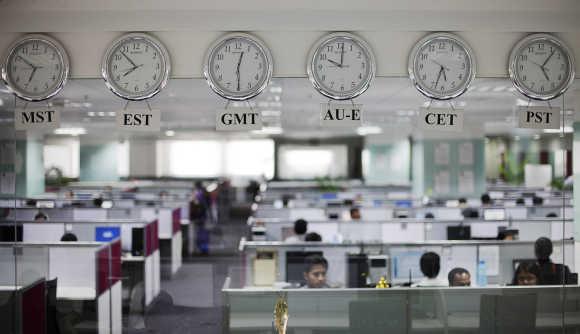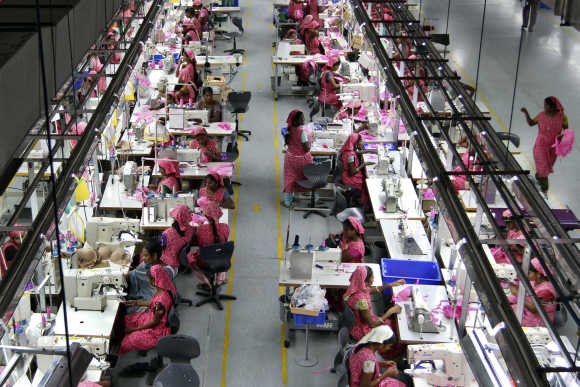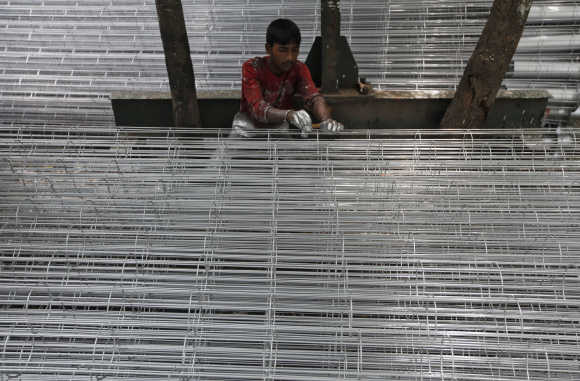Photographs: Vivek Prakash/Reuters
India's overall unemployment rate last year was 3.8 per cent, according to the Chandigarh-based Labour Bureau, an office of the Union ministry of labour and employment.
This number emerged from a survey of 1,28,000 households, and was first reported in Business Standard last week. While addressing reporters later, the director-general of the bureau said that India's rate compared "favourably" with other major economies, in many of which unemployment is in double digits.
This is so comprehensive a misunderstanding of the nature of unemployment in India that it is surprising it should be repeated by such a senior researcher.
...
Can we trust the unemployment rate claimed by govt?
Image: Workers carry salt to load it in a supply truck at a salt pan in Chennai.Photographs: Babu Babu/Reuters
Decomposing the data reveals why the overall number makes little sense, and casts into doubt the relevance of such surveys as currently organised.
In rural India, unemployment was lower than in urban areas - at 3.4 per cent and 5 per cent, respectively.
Meanwhile, only two per cent of those who could not read and write were unemployed, while one in 10 of those with a postgraduate degree were.
A cursory reading of these statistics might lead to the conclusion that things are worse for those at the top of the educational pyramid than those below - that India is doing a good job, in fact, of providing for those with skills.
...
Can we trust the unemployment rate claimed by govt?
Image: A Kashmiri fisherman is reflected in the waters of Dal Lake as he throws a net to catch fish in Srinagar.Photographs: Fayaz Kabli/Reuters
Of course, nothing could be further from the truth. In the process of understanding these figures, much else is elucidated - the peculiar nature of employment in poorer countries such as India, and why some economic methods and analyses developed for more advanced economies simply do not work here.
"Searching" for a job, the process that causes non-structural unemployment in the developed world, is simply not an option for those in India at a subsistence level, who must find work in order to eat from day to day.
...
Can we trust the unemployment rate claimed by govt?
Image: Workers at the Intimate Fashions factory in Kanchipuram district, 30km south of Chennai.Photographs: Babu Babu/Reuters
The "matching" process, which, if inefficient, extends unemployment duration elsewhere, is irrelevant for those with few skills to market. Those with skills expect to find work suited to those skills. Those without skills must find any work they can get.
Unsurprisingly, therefore, it is when the low-skilled, the poor, and the illiterate are polled that low levels of unemployment are observed.
...
Can we trust the unemployment rate claimed by govt?
Image: A worker paints sifts used for cement filtration at a manufacturing factory in the industrial area of Kolkata.Photographs: Rupak De Chowdhuri/Reuters
The size of the "self-employed" population - 48.6 per cent of the working population, while 20 per cent earn regular wages and the rest identify as casual labourers - reveals the degree to which individuals are thrown on their own resources.
It also reveals the tiny size of the organised sector. Indeed, the caution with which unemployment figures - a staple of economic analysis - should be interpreted in India's largely unorganised economy reveals the fundamental problem with importing economic paradigms wholesale from the developed world to India.







article